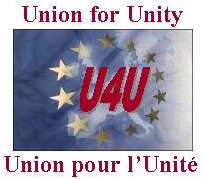
La
lettre d'U4U
pour EUROCONTROL
When the dust settles …
The crisis caused by the volcanic cloud highlighted EUROCONTROL's
professionalism and ability to manage unforeseen situations, both
technically and in terms of communication. Even more remarkable is the
fact that the crisis procedures fine-tuned with the help of an army of
consultants did not work at all. Rather, our excellent results and
improved reputation are entirely due to the competence, cool-headedness
and professional conscience of EUROCONTROL's officials*.
Sadly, since the cloud has receded, bad habits have come back with a vengeance. The European Commission observes that "the fractured European air traffic management system complicated airspace control during the crisis" but persists in believing that the SES II package will solve the problem, while the fact is that even if we accept the hypothesis that the FABs will be effectively and efficiently in place in 2012 (which requires a good dose of optimism), nothing will have been settled at pan-European level in this area.
If there is a lesson to be learnt, it is that Europe needs more of EUROCONTROL, which needs to be the single, unique and impartial centre for operational safety decisions. Otherwise, during the next crisis, Mr Giovanni Bisignani will be able to repeat the statements he made on BBC Radio 4: "This is a European embarrassment and it's a European mess. [...] It took five days to organise a conference call with the ministers of transport."
* to whom a cup of coffee is now denied
The PC will discuss ETS in May, but will also take a decision on the adjustment of remuneration. The method, which is actually our employment contract, stipulates a gross rate of 3.6%. The EU States have decided to grant only 1.87%, pending a decision by the European Court of Justice, which may well reject this unilateral decrease.
At EUROCONTROL, the Permanent Commission must take a decision. It should be aware that we will contest any of its decisions which are not in line with the commitments made, and any subsequent decisions based on unfounded calculations, and that we will go to ILOAT to demand interest on late payment.
Meanwhile, there are budgetary provisions in place for full application of the method, while any delay caused by a legally contestable decision not to apply the method would present a considerable risk to budgets in the near future.
The Prague and Budapest Centres are closing. There is a certain amount of logic here, since the CEATS States nipped this project, which could have generated huge economies of scale, in the bud. They are also continuing to empty the FAB CE concept of its substance. In the meantime, the avenues for bringing these Centres to life have all been abandoned.
This is a major setback in the process of defragmenting the European sky and consolidating the ACCs, and the States are primarily responsible for it, despite their lofty political declarations.
The staff of these Centres will be offered reassignment, principally at Headquarters. Their situation in this regard urgently needs to be fully clarified, and they must be allowed reasonable periods of time for this transfer.
The DG recently brought
together Agency managers to announce to them that many people would need
to leave in order to save EUR 4 million in 2011 and EUR 8
million in 2012 under the ETS scheme. Judging by the managers' reactions,
they were all hoping that these savings would be made in someone else's
back yard, although 215 departures are needed.
In the meantime, a
cumbersome system is going to be put in place for the selection procedures
for directors, heads of unit and experts on the one hand, and the rest of
the staff on the other. Anyone left without a post at the end of this
exercise will have plenty of cause for concern. Let's recall that U4U only
accepts departures on a voluntary basis.
Other entities, including certain ANSPs, have been through similar time-consuming and frustrating processes, which generally end badly because customers and missions are forgotten as everyone tries to save their own skin. The wounds are slow to heal, with a long-lasting impact on staff morale and performance.
The DG has presented the progress made in the construction of the three pillars which will replace CND. The main feature of the project is the foreseeable loss of economies of scale owing to the reduction in transverse services and communication between the pillars, and the compartmentalisation of skills and jobs.
EUROCONTROL's institutional situation is becoming more fragile by the day, and few still hope that the revised Convention will ever be ratified. The DG has asked the States to reflect on a new institutional framework, but experience shows that this type of exercise takes many years.
The recent crises, however, have shown that full application of the revised Convention, in particular the DG's enhanced ability to take initiatives, would have been useful in order to take coordinated measures at European sky level.
Join us ! Membership fee 5€ or donor 50€
Participate in our actions, contribute to our projects, let your voice be heard !